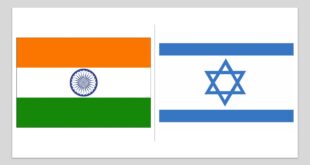- The Group of Seven (G7) countries, the European Union and Australia have imposed a price cap on Russian sea-borne oil to make it harder for Russia to fund its war against Ukraine.
- Under the plan, which took effect on December 5, western companies that dominate the global oil shipping and insurance business will be banned from offering their services to ship or insure Russian oil that is purchased at more than $60 per barrel.
- The price cap is an attempt by the West to cut Russia’s oil revenues without affecting oil supplies.
- It should be noted that since the beginning of the Russia-Ukraine war, the West has been trying to limit Russia’s energy revenues.
- At the same time, since Russia is a major oil producer that contributes more than 10% of overall global supplies, the West has been wary of imposing sanctions that could cause oil supply from Russia to fall steeply and send oil prices shooting up.
- In fact, it is estimated that crude oil prices could rise to as much as $200 per barrel if oil supply from Russia were to be disrupted by western sanctions.
- Noted economists such as Janet Yellen, currently U.S. Treasury Secretary, and Mario Draghi, till recently Prime Minister of Italy, have been at the forefront of pushing the idea of a price cap, which they believe will limit Kremlin’s oil revenues without affecting global oil supplies.
- Even though the West has cut down its purchase of Russian oil this year, Russia has been able to sell its oil to India and China to keep its energy revenues buoyant.
- The price cap could be seen as an attempt by the West to make buyers of Russian oil pay less for the oil they purchase, thus preventing the Kremlin from profiting too much from its oil sales.
- Russia has already had to sell its oil at discounted rates, which the West sees as a partial success in its efforts to choke Kremlin’s revenues by refusing to purchase Russian oil. It is estimated that Russia, with a cost of production of somewhere between $20 and $45 per barrel, will earn a small profit on its oil sales.
- At the moment, Russian oil is trading at a price that is below the cap of $60 per barrel imposed by the West. However, the average price of Russian Urals over the last 10 years has been about $75 per barrel.
- So, while the price cap of $60 per barrel is unlikely to adversely affect the supply of Russian oil or Moscow’s revenue in the short run, it is likely to have adverse effects in the longer run. When the market price of Urals rises above $60, this would increase the chances of violation of the price cap by traders.
- The higher the market price when compared to the price cap, the higher also will be the incentive for traders to bypass the price cap and sell Russian oil at a price higher than $60 per barrel to willing buyers.
- This would, in effect, undermine the West’s efforts to prevent Russia from earning the market price on its oil.
- But even if the West somehow manages to effectively implement the $60 per barrel price cap, it cannot really hope to restrict Russia’s revenues through a price cap without also affecting oil supplies adversely at the same time.
SOURCE: THE HINDU, THE ECONOMIC TIMES, PIB
 Chinmaya IAS Academy – Current Affairs Chinmaya IAS Academy – Current Affairs
Chinmaya IAS Academy – Current Affairs Chinmaya IAS Academy – Current Affairs

